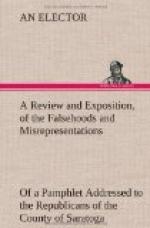“I wish it were possible for me, by word of mouth, to show the importance of this undertaking and the great service that would be rendered thereby to God and His Church, and the great advantage it would be to the service of Your Majesty and the peace of Your States to attack the enemy here.”
So wrote in 1600 to Philip II, the Archbishop of Dublin, already quoted, Mattheo de Oviedo.
This prelate had been specially sent to Ireland “to see and understand the state of the country misrepresented by English emissaries at foreign courts.”
The wrath of Elizabeth against O’Neill was largely due to his keeping in touch with the continent, whereby the lies of her agents abroad were turned to her own ridicule. To Essex, her Viceroy, she wrote: “Tyrone hath blazed in foreign parts the defeat of regiments, the death of captains, and loss of men of quality in every quarter.”
O’Neill not only for years beat her generals in the field, her beat herself and her councillors at their own game. To Essex, in an ecstacy of rage at the loss of the last great army sent, she wrote (September 17th, 1599): “To trust this traitor upon oath is to trust the devil upon his religion. Only this we are sure (for we see it in effect), that you have prospered so ill for us by your warfare, as we cannot but be very jealous lest we should be as well overtaken by the treaty.”
(Essex wished to bring O’Neill in by a treaty which, while ostensibly conceding the terms of the Irish prince was to allow the Queen time to carry out her purpose.)
The Irish princes knew Elizabeth and her Ministers, as well as she read Essex. “Believe no news from Ireland of any agreement in this country,” they had written to Philip II in 1597, “great offers have been made by the Queen of England, but we will not break our word and promise to your.” In a letter written a year earlier (Oct. 18, 1596), replying to the special envoy sent by the king, they said: “Since the former envoys left us we have used every means in our power, as we promised we should do, to gain time and procrastination from one day to another. But how could we impose on so clever an enemy so skilled in every kind of cunning and cheating if we did not use much dissimulation, and especially if we did not pretend we were anxious for peace? We will keep firm and unshaken the promises which we made to Your Majesty with our last breath; if we do not we shall incur at once the wrath of God and the contempt of men.”
How faithfully they kept those promises and how the Spanish King failed in his, their fate and the bitter ruin of their country shows. That men fighting for Ireland had to meet Elizabeth and her statesmen with something of her own cunning is made very clear to anyone reading the State papers in Ireland.
Essex, in one of his “answers” wrote: “I advise Her Majesty to allow me, at my return to Dublin, to conclude this treaty, yielding some of their grants in the present; and when Her Majesty has made secret preparations to enable me to prosecute, I will find quarrels enough to break and give them a deadly blow.”




